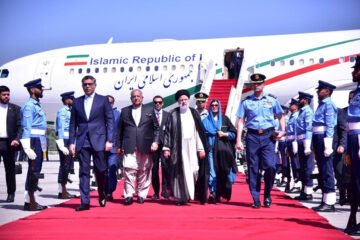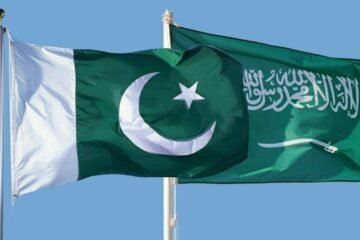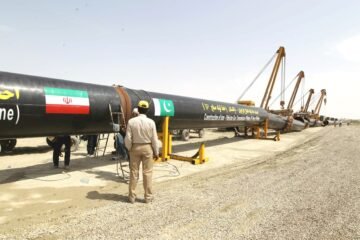American Presidents and their Concept of World Order

The contemporary World Order revolves around the might and legitimacy of the United States. Historically, nations have forged alliances, established equilibriums, and prevented adversaries from transgression by creating geographical hurdles. However, the present World Order rose from the rubble of World War II, built by and around the power of the United States.
Any strategic or political order is always in a perpetual state of flux; serving the interests of a few and exhorting others to abide by it. The American-led world is not just an outcome of post-WWII circumstances. The US Presidents since its independence have maneuvered foreign policy and envisaged their doctrines to export US values and protect its national interest abroad.
Post-independence, the US distanced itself from global events. President George Washington put forward the Proclamation of Neutrality 1793 and reneged the French amidst French Revolution despite having fully acquired French assistance during American Revolution. Moreover, in the early 19th Century, US isolationism extended to the American continent when President James Monroe declared that any expansionist move by a European power across the American continent would be a proclamation of war with the US. America acted unilaterally in becoming the sole protector of the continent sans any consultation with other stakeholders.
During the late 19th Century, post-Civil war reconstruction period, US foreign policy began to turn over a new leaf. It became an emblem of manifest destiny, exporting US standards beyond its borders. Where the rest of the world referred to it as imperialism, the US proclaimed it as ‘the white man’s burden’. It defeated Spain in proximity, engulfed the Philippines, and laid claim on Puerto Rico. Nonetheless, as the 20th Century dawned, contrary to the wishes of its founding fathers, the US began intervening in European affairs. A precedent for a new normal was being set.
Theodore Roosevelt (1901 – 1909) was an iconoclast in US foreign policy among his predecessors. He envisaged America to play a global version of the role that Britain had performed in Europe in the 19th century. Ensuring the maintenance of equilibrium and hovering across Eurasia and tilting the balance against any power posing a threat to US values. His ‘speak softly and carry a big stick’ diplomacy sought America to play a pivotal role in global affairs. Roosevelt flamed insurgent elements in Colombia to break away the Panama province. As a result, the US began work on piercing the Americas for shortening trade and strategic routes to a great extent.
As opposed to Roosevelt, Woodrow Wilson, his successor, contoured US foreign policy by reducing the chasm between its domestic and foreign aim. Instead of maintaining equilibrium through power, he sought a community of power, where each member would practice open diplomacy, sans secret or separate interests. His model seemed apposite in the wake of the devastation caused by separate alliances that led to WWI. Wilson suggested altering the system of government in Germany for permanent peace. This was to thwart war aims instead of reparations, as sought by other leaders.
What Wilson envisaged was a foreign policy that worked on a World Order that secured peace through democracy, open diplomacy, and the cultivation of shared rules and standards. The jewel in the crown of this model was the spread of participatory governance across the globe and the expansion of democratic ideals originally sowed in the US.
However, none of the US Presidents, in devising the contemporary world order can come close to the impact and significance accorded to Franklin Delano Roosevelt. From denouncing the prospects of US intervention in WWII to seeking Congress permission for intervention post-Pearl Harbour attack, FDR’s view of world order transformed throughout his subsequent presidential terms.
FDR gave the US a new dimension on the global stage. As the UK took a back seat owing to the destruction caused by German attacks, the US became the ultimate guarantor of peace and stability. His farsightedness sought him an alliance with the Soviet Union when the latter showed proclivity in colluding with Germany. Through the Atlantic Charter in 1941, he decolonized the world as colonial powers packed up their bags. Moreover, he struck a balance between establishing an order based on participation, democracy, and liberty and confronting Soviet Union’s expansionist agenda.
As discussed, the doctrines exhibited by the US Presidents helmed the world towards fraternity, liberty, and participation. The single divine governance, never experienced in Europe, was prodded by the US. It exported democratic institutions to enfranchise people and expand representation. It forged Alliances with different states to further US national interest. An example is NATO, formed in 1949 as an intergovernmental organization to protect US allies and check Soviet expansion. It also signed SEATO and CENTO in the 1950s to check communist penchant in the Asia region.
Teddy Roosevelt envisaged the US playing a global role. Woodrow Wilson presented a system of striking a balance of power through legitimacy and setting standards and adhering to them. FDR, as a result of the US being dragged into WWII, pivoted his vision. He colluded Teddy Roosevelt’s and Wilson’s ideologies, setting standards and linking power with legitimacy with the US at the center and ensuring protection and relevance of its multilateral institutions. Nonetheless, changing times have created new problems for the US, rising China and dismal results of a 20-year struggle in Afghanistan have diminished US power and the legitimacy of its global institutions.
Stay tuned to Baaghi TV for more. Download our app for the latest news, updates & interesting content!










